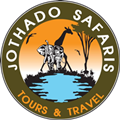
Vaccination & Insuarance – Health Insuarance
Thinking you need Health Insuarance? The year 2020 was like no other year we have experienced before, many had to put their travel plans on hold partly because of the fear and anxiety of contracting the COVID-19 virus and prolonged lockdowns that were being imposed around the world.
Queen Elizabeth National Park is located in western Uganda, and is Uganda’s most-visited National Park. Named after Queen Elizabeth II and was established in 1954. The park’s diverse ecosystems, which include sprawling savanna, shady, humid forests, sparkling lakes and fertile wetlands, make it the ideal habitat for classic big game, ten primate species including chimpanzees and over 600 species of birds. Explore Queen Elizabeth National Park
Food & Drinks
All water should be regarded as being a potential health risk. Water used for drinking, brushing teeth or making ice should have first been boiled or otherwise sterilised. Milk is unpasteurised and should be boiled. Powdered or tinned milk is available and is advised. Avoid dairy products which are likely to have been made from unboiled milk. Only eat well-cooked meat and fish, preferably served hot. Vegetables should be cooked and fruit peeled. Be sure to wash fresh produce well before eating and avoid raw foods in restaurants. Do not eat food prepared by unlicensed vendors or where you have concerns about kitchen hygiene. Only use boiled or bottled water, and avoid ice in drinks. Carry hand sanitizer to use before meals.
Travel Health Insuarance
Medical facilities in Uganda are limited. Medical help at the scene of an accident is likely to be limited. In the case of serious accident or illness, evacuation by air ambulance may be required. Make sure you have adequate travel health insurance and accessible funds to cover the cost of any medical treatment abroad and repatriation.
Other Risks
HIV/AIDS is widespread. Vaccinations against tuberculosis and hepatitis B are sometimes advised. After road accidents, malaria is the most serious health concern for travellers visiting Uganda. Seek up-to-date advice regarding malarial areas and the appropriate antimalarial medication prior to your trip, usually doxycycline, Malarone or mefloquine.
Pregnant women are more vulnerable to malaria and are advised against travel to regions where malaria is present. Take a good insect repellant and try to avoid bites between dusk and dawn by always covering up.Ebola and Marburg hemorrhagic fevers have been endemic within certain regions of the country. The vectors of these viruses are unknown, but have been thought to be linked with bats.
Therefore, travelers should avoid (or be extremely cautious when) entering any caves. If you are bitten by an animal, assume that the animal was infected by a disease and seek prompt medical attention.Remember, that many of the lakes have Schistosomiasis (Bilharzia). Check with the locals and do not paddle on the lake shore if you’re not sure. However, if you do get infected, about which you won’t know until 1-2 months after contact with water, visit your family doctor or hospital. Diarrhea disease and intestinal worms are also a concern and travelers should be careful what they eat or drink.
